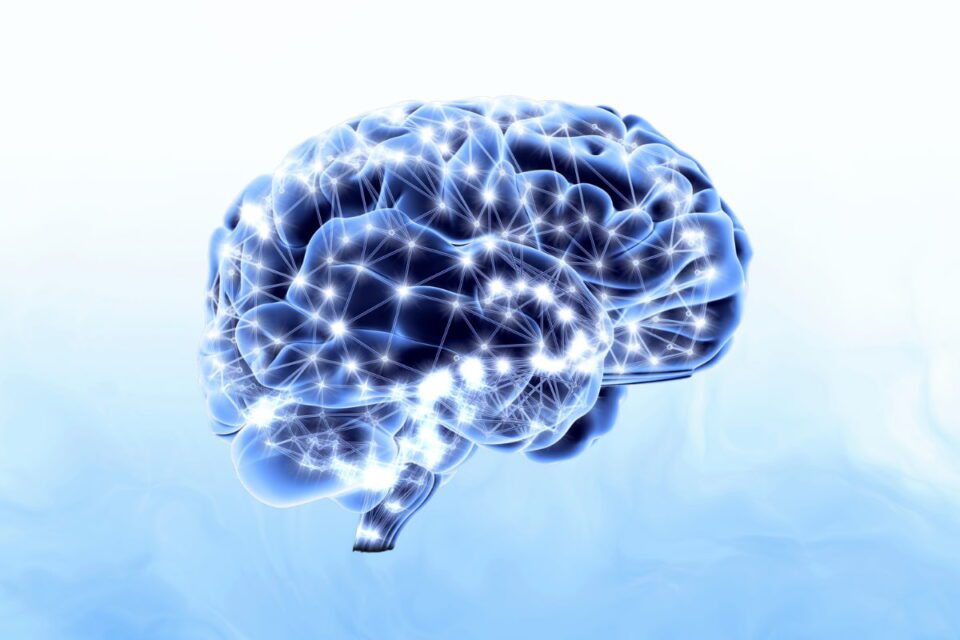In the midst of our dynamic and demanding lifestyles, a good night’s sleep often takes a back seat to the demands of work, family, and social commitments. However, the impact of quality sleep on brain performance cannot be overstated. The complex relationship between sleep and cognitive function is a fascinating journey into the world of neuroscience, revealing just how vital rest is for our mental well-being.
The realm of sleep science intricately outlines the cognitive benefits of quality sleep, including improved memory, enhanced concentration, and overall brain function. It leads us to ask: What is the profound relationship between sleep and brain function, and how does the deprivation of sleep manifest as cognitive impairment? This exploration invites us to appreciate the nexus between rest and cognitive function with a deeper understanding of the essential role sleep plays in nurturing our brain performance.
Table of Contents
Understanding the Connection: Sleep and Brain Function
Quality sleep is not merely a time of rest; it’s a crucial period during which the brain undergoes essential processes to maintain optimal function. One key aspect is memory consolidation, where the brain solidifies and organizes memories from the day. As we sleep, our brains move information from short-term to long-term memory, enhancing our ability to recall and learn.
A good nIght’s sleep Is not just rest; It’s an Investment In your cognItIve wealth. Memory blooms, and braIn performance shInes In the garden of rejuvenatIng dreams
Furthermore, sleep plays a pivotal role in concentration and attention. Those who consistently enjoy sufficient sleep are better equipped to focus on tasks, make decisions, and solve problems efficiently. This connection between sleep and cognitive function underscores the importance of prioritizing rest for a sharper and more alert mind.

The Impact of Sleep Deprivation on Cognitive Impairment
Conversely, the consequences of insufficient sleep on cognitive functions are profound. Sleep deprivation not only impairs memory consolidation but also hampers the brain’s ability to process and store information. Studies have shown that even a single night of inadequate sleep can lead to difficulties in concentration, decreased attention span, and slower reaction times.
Every hour of qualIty sleep Is an Investment In cognItIve excellence. Fuel your braIn wIth rest, and watch your performance soar to new heIghts
Chronic sleep deprivation poses even more significant risks. Over time, it can contribute to cognitive decline and increase the risk of neurodegenerative diseases such as Alzheimer’s disease. The brain’s ability to clear out toxins and waste products is compromised without adequate sleep, leading to a buildup that may contribute to cognitive impairment.

The Role of Sleep in Emotional Regulation
Beyond memory and concentration, sleep plays a crucial role in emotional regulation. Lack of sleep can heighten emotional reactivity and contribute to mood swings. This is because sleep deprivation affects the amygdala, the brain’s emotional center, and the prefrontal cortex, which is responsible for regulating emotions. A well-rested mind is better equipped to handle stress, anxiety, and emotional challenges.
Scientific Insights into Sleep and Cognitive Function
Numerous scientific studies have delved into the intricate relationship between sleep and cognitive function. A study published in the Frontiers in Neurology found that sleep-deprived individuals had reduced activity in the hippocampus, a region crucial for memory and learning. (Ferrara M, Moroni F, De Gennaro L, Nobili L. Hippocampal sleep features: relations to human memory function, 2012)
Another study in Frontiers in Systems Neuroscience Journal highlighted that sleep is not only effective as a cognitive enhancer to boost memory performance but it can also be applied in clinical settings to restore normal cognitive functioning. Because several disorders and diseases are accompanied by changes in sleep patterns and dysfunctions of memory, such as depression, post-traumatic stress disorder, Alzheimer’s disease.(Diekelmann S. Sleep for cognitive enhancement, 2014)
Furthermore, a research published in the Thieme Medical Publishers suggests that disturbed sleep as early as in middle-age may increase the risk of dementia. The study followed individuals over several years, finding that those with sleep problems had a higher risk of developing cognitive impairments later in life. (Wennberg AMV, Wu MN, Rosenberg PB, Spira AP. Sleep Disturbance, Cognitive Decline, and Dementia: A Review, 2017)
Sleep Is the sIlent conductor orchestratIng the symphony of a brIllIant mInd. Embrace the nIght, and let your braIn’s performance be the masterpIece of your day
7 Proven Ways for Improving Sleep and Cognitive Function
Understanding the importance of sleep is the first step towards optimizing cognitive function. Here are some practical tips to ensure a good night’s sleep:
- Establish a Consistent Sleep Schedule: Go to bed and wake up at the same time every day, even on weekends. This helps regulate your body’s internal clock.
- Create a Relaxing Bedtime Routine: Engage in calming activities before bedtime, such as reading a book, taking a warm bath, or practicing relaxation techniques.
- Optimize Your Sleep Environment: Ensure your bedroom is conducive to sleep by keeping it dark, quiet, and cool. Invest in a comfortable mattress and pillows.
- Limit Screen Time Before Bed: The blue light emitted by screens can interfere with the production of the sleep hormone melatonin. Turn off electronic devices at least an hour before bedtime.
- Watch Your Diet: Avoid heavy meals, caffeine, and alcohol close to bedtime. These can disrupt sleep patterns and affect the quality of your rest.
- Incorporate Physical Activity Into Your Day: Regular exercise can help you fall asleep faster and enjoy deeper sleep. Aim to exercise earlier in the day, as intense workouts too close to bedtime might interfere with your ability to fall asleep.
- Practice Mindfulness or Meditation: Techniques such as mindfulness, meditation, or deep-breathing exercises can help reduce stress and calm your mind before bed. This can enhance your ability to fall asleep peacefully and wake up feeling refreshed.
For further insights and a deeper exploration of this topic, check out our related article at [How To Sleep Better: A Guide to a Better Version of You].
Conclusion: Prioritizing Sleep for a Sharper Mind
In conclusion, the relationship between sleep and cognitive function is complicated and profound. Quality sleep is not a luxury; it is a fundamental requirement for maintaining optimal brain performance. Whether you are striving to enhance memory, concentration, or emotional well-being, a good night’s sleep is your ally.
As we navigate the demands of our busy lives, let us not overlook the critical role that sleep plays in our overall health. By understanding the science behind sleep and cognitive function, we empower ourselves to make informed choices that prioritize our well-being. So, tonight, give your brain the rest it deserves, and wake up to a world of sharper focus, improved memory, and enhanced cognitive function.

